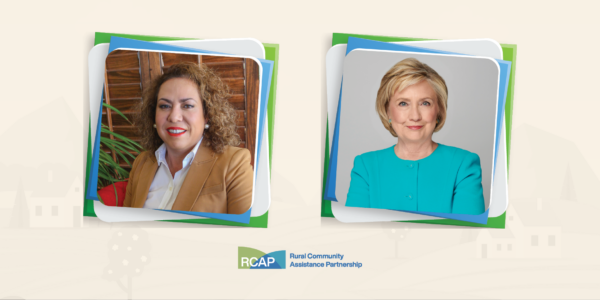RCAP Joins Hillary Clinton, Columbia University, For A Conversation on Rural and Tribal Infrastructure

RCAP CEO Olga Morales Pate joined Columbia World Projects and other experts for a discussion on water and wastewater systems in rural areas. The conversation, moderated by former Secretary of State and presidential candidate Hillary Clinton, was fruitful and brought together a network of diverse perspectives and backgrounds to discuss the various challenges and constraints unique to this type of infrastructure.
“As a technical assistance provider organization of fifty years, we work with these kinds of challenges and communities day in and day out… The number of challenges that we have across the country are many. When we put the responsibility on the individual resident, if we know that the cost per household is prohibitive, we are never going to get to a sustainable solution,” Morales-Pate stated.
RCAP is made up of six regional affiliates which have strong local relationships, specialized knowledge for communities, and employees who are in the communities they serve while also having the strength of national breadth. This combination enables effective work which produces change. One thing is clear- every community looks different.
A common theme was that many considered access to wastewater sanitation and other water infrastructure systems a human right, which makes this topic vitally important to address. Education, improved data collection to understand what systems households use, innovation in methods and mindset, sustainability and longevity, and equity in services were all important factors to consider. In addition, servicing clusters of people instead of individuals in a community was thought to yield a larger impact in hard to access communities.
Bringing together expertise to share knowledge, learn, and improve is a part of RCAP’s value system. We were happy to be a part of the conversation on rural development with Columbia World Projects and stand committed to partnering with individual communities as technical assistance providers. It is vital to build trust and reliability at the local level while also keeping in mind what is happening nationwide.